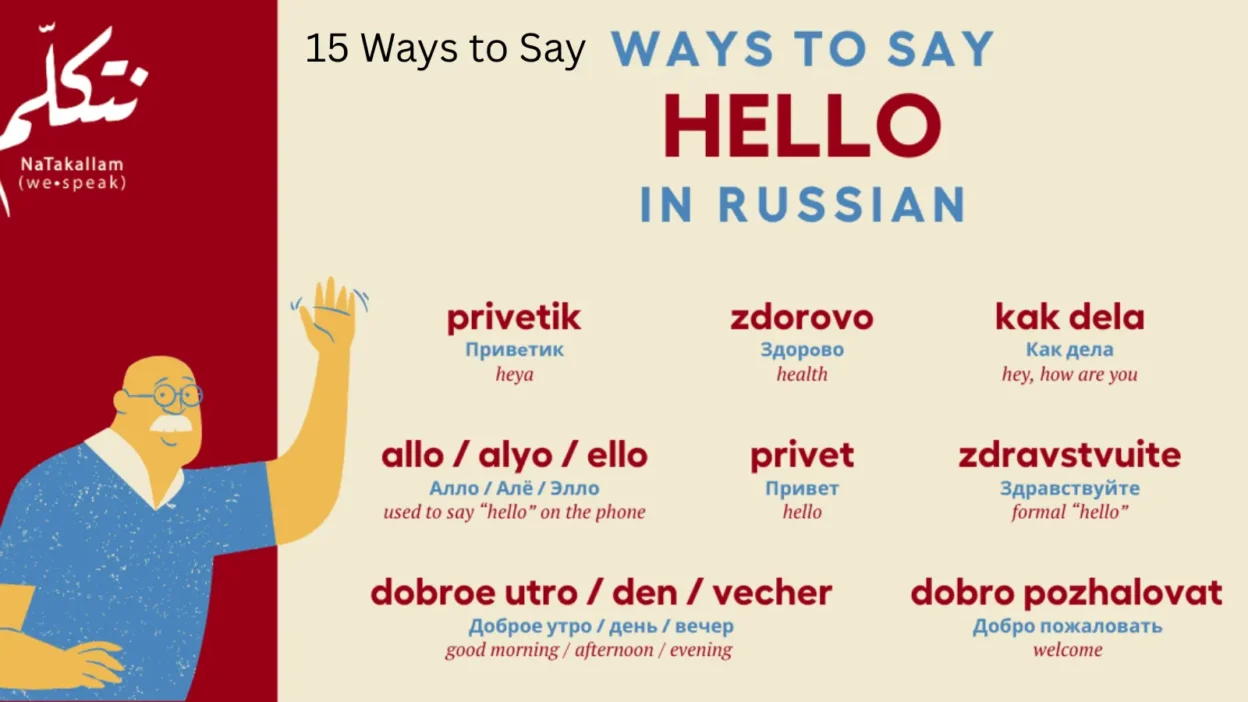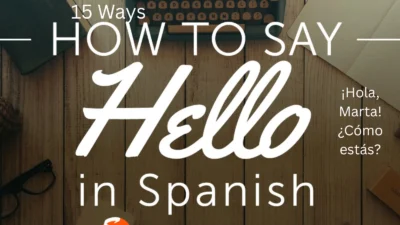Learning how to say hello in Russian is the first step to making a great impression when meeting native speakers.
In Russian, greetings can change depending on the time of day, the level of formality, and the relationship you share with the person. Whether you’re planning to travel to Russia, connect with Russian‑speaking friends, or simply expand your language skills, knowing multiple ways to greet someone will make your conversations warmer and more authentic.
In this guide, you’ll discover 15 friendly greetings in Russian that you can use in casual chats, formal situations, and even in text messages. These phrases will help you sound more confident, culturally aware, and ready for real‑life conversations in 2025.
Say Hello in Russian
Here are 15 ways to say hello in Russian, complete with dialogue examples and a look at where each greeting comes from or how it’s used.
How to Say Hello in Russian
| # | Russian | Pronunciation | Meaning |
|---|---|---|---|
| 1 | Привет | pree-VYET | Hi (casual) |
| 2 | Здравствуйте | ZDRAV-stvooy-tye | Hello (formal) |
| 3 | Алло | ah-LO | Hello (phone) |
| 4 | Доброе утро | DOH-bra-ye OO-tra | Good morning |
| 5 | Добрый день | DOH-briy dnyen | Good day |
| 6 | Добрый вечер | DOH-briy VYE-cher | Good evening |
| 7 | Приветики | pree-VYE-tee-kee | Cute hi |
| 8 | Здарова | zda-RO-va | Yo / Sup |
| 9 | Привет всем | pree-VYET vsyem | Hi everyone |
| 10 | Всем здравствуйте | vsyem ZDRAV-stvooy-tye | Hello everyone (formal) |
| 11 | Хай | hai | Hi (slang) |
| 12 | Мир вам | meer vam | Peace to you |
| 13 | Салют | sa-LYUT | Hey / Hi (friendly) |
| 14 | Рад тебя видеть | rad tee-BYA VEE-det’ | Good to see you |
| 15 | Давно не виделись | dav-NO nye VEE-de-lees’ | Long time no see |
1. Здравствуйте (Zdravstvuyte) – Formal “Hello”
Origin:
From the verb здравствовать meaning “to be healthy.” This is the standard, respectful greeting for formal or first-time interactions.
Example:
👤 User A: Здравствуйте, Анна Сергеевна.
👤 User B: Здравствуйте. Очень приятно познакомиться.
Use: Formal settings, strangers, elders, or business.
2. Привет (Privet) – Informal “Hi”
Origin:
A casual and friendly way to say hi, like “Hey” in English. Common among friends or people your age.
Example:
👤 User A: Привет, Дима! Как дела?
👤 User B: Привет! Всё нормально. А у тебя?
Use: Informal; for peers, friends, and kids.
3. Доброе утро (Dobroye utro) – Good Morning
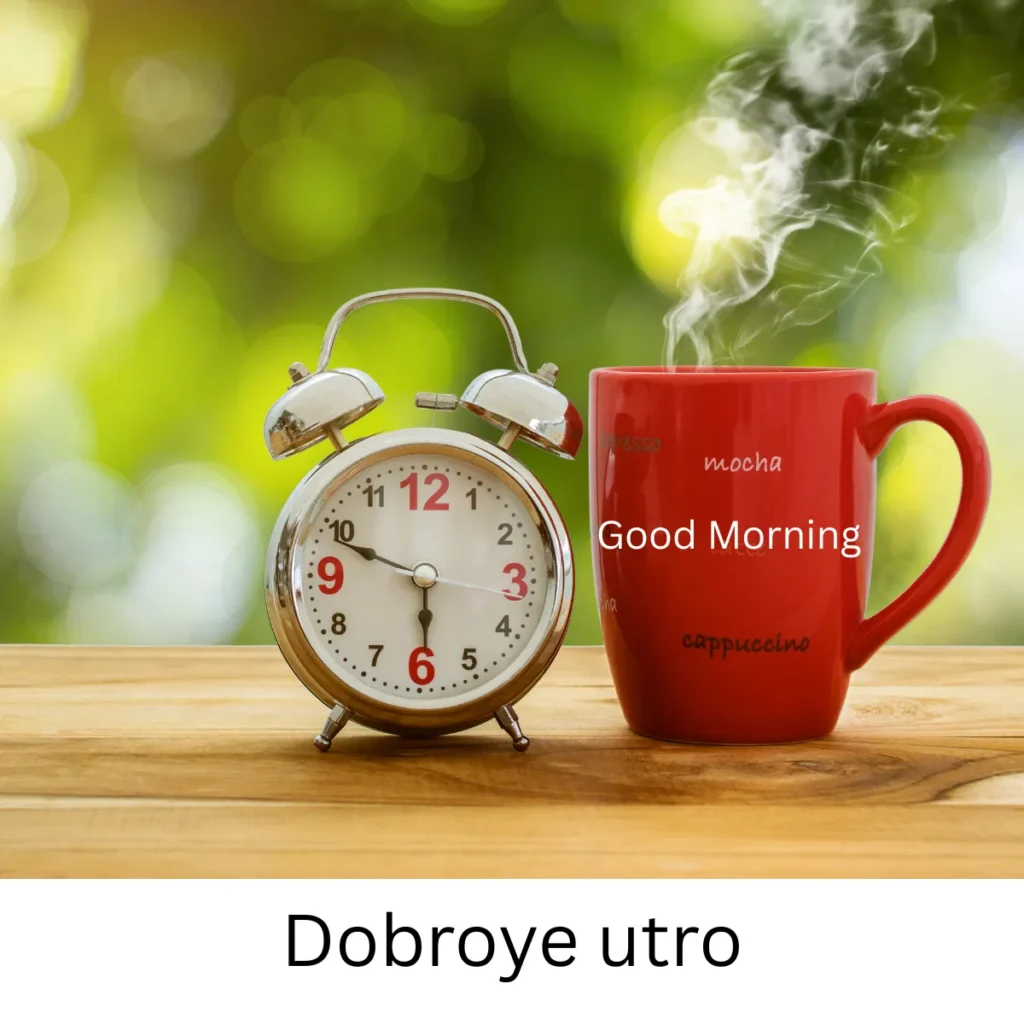
Origin:
Literally “Kind morning,” this is used similarly to the English “Good morning.”
Example:
👤 User A: Доброе утро, коллеги!
👤 User B: Доброе утро! Готовы к совещанию?
Use: Morning hours in formal or informal contexts.
4. Добрый день (Dobryy den’) – Good Day / Afternoon
Origin:
A polite greeting used between late morning and early evening.
Example:
👤 User A: Добрый день! Это аптека?
👤 User B: Добрый день! Да, проходите.
Use: Polite and neutral; great for customer service.
5. Добрый вечер (Dobryy vecher) – Good Evening
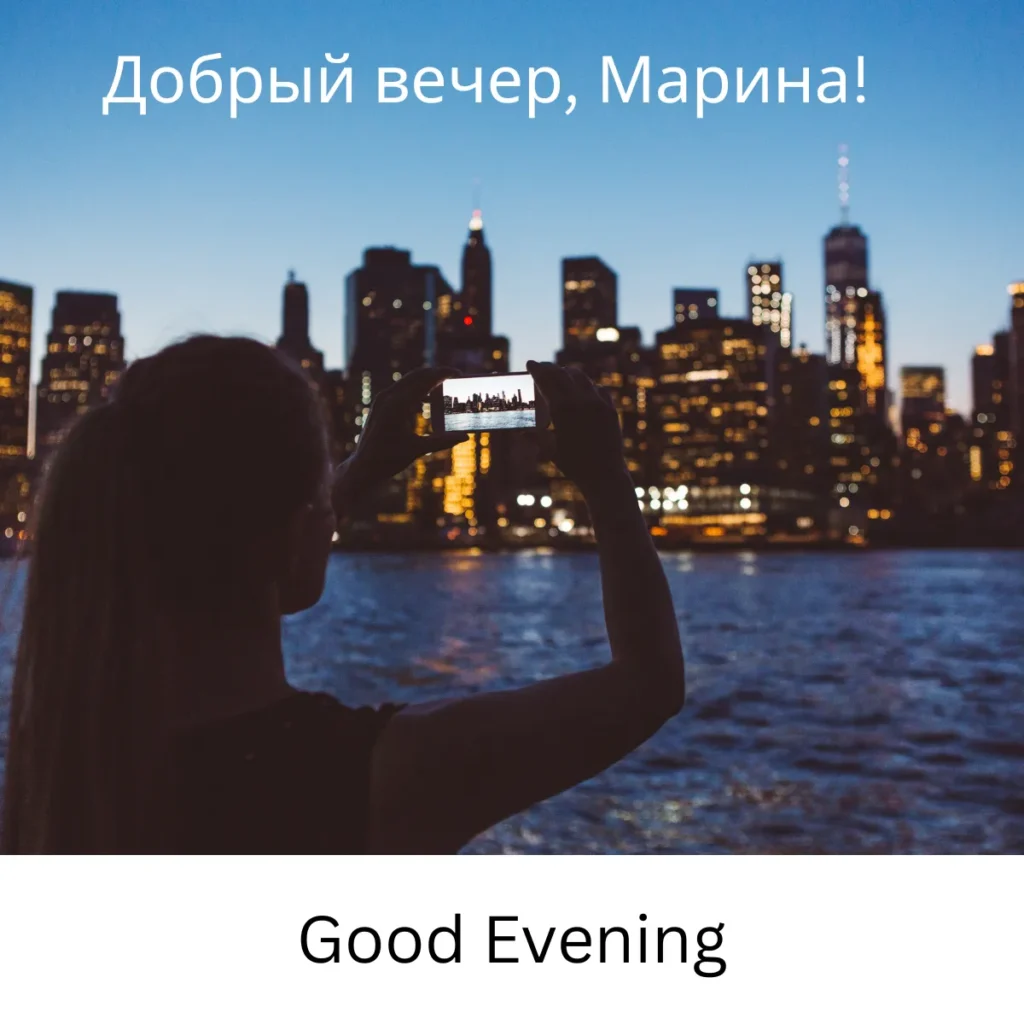
Origin:
Used after 5–6 p.m., just like “Good evening” in English.
Example:
👤 User A: Добрый вечер, Марина!
👤 User B: Добрый вечер! Как прошёл день?
Use: Formal or polite evening greeting.
6. Алло (Allo) – “Hello” on the Phone
Origin:
Borrowed from the French “Allô,” it’s used exclusively when answering phone calls.
Example:
📞 User A: Алло?
📞 User B: Привет, это я. Ты дома?
Use: Only on the phone; formal or informal.
7. Хай (Khaj) – Slang “Hi”
Origin:
A direct borrowing of the English “Hi,” mainly used in texting or among youth.
Example:
👤 User A: Хай, ты видел мой сторис?
👤 User B: Ага, крутое видео!
Use: Casual and online or youth slang.
8. Здарова (Zdarova) – Very Informal “Hey”
Origin:
A street-style contraction of здравствуй, common among young males or close friends.
Example:
👤 User A: Здарова, брат!
👤 User B: О, здарова! Давно не виделись.
Use: Very informal; often male-to-male.
9. Салют (Salyut) – Cool/Fun “Hi”
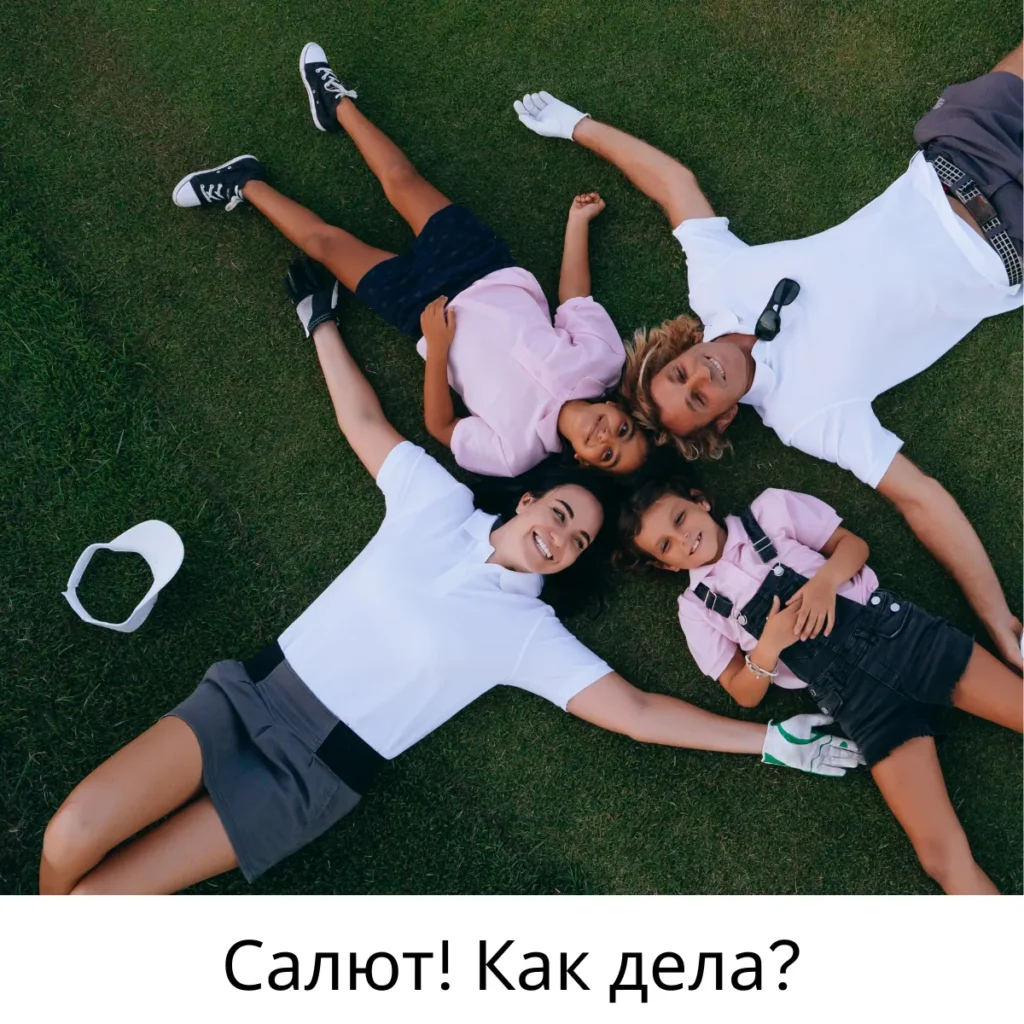
Origin:
Borrowed from French “Salut.” It sounds upbeat and modern; common in pop culture.
Example:
👤 User A: Салют! Как дела?
👤 User B: Отлично! А у тебя?
Use: Youthful, urban, or online greeting.
10. Приветики (Privetiki) – Cute “Hi-hi!”
Origin:
A playful, affectionate form of привет often used by women or in text messages.
Example:
👤 User A: Приветики, как ты? 💕
👤 User B: Хихи, приветик! Скучала!
Use: Very informal, often feminine or flirty.
11. Йо (Yo) – Russian “Yo!”
Origin:
Borrowed from English street slang, popular in rap culture or among youth.
Example:
👤 User A: Йо, чувак! Всё ок?
👤 User B: Йо-йо, всё супер!
Use: Street-style, very casual and modern.
12. Эй (Ey) – “Hey!” to Get Attention
Origin:
An interjection for catching someone’s attention. Like “Hey!” when calling someone from afar.
Example:
👤 User A: Эй, подожди минутку!
👤 User B: Что случилось?
Use: Neutral; depends on tone. Can sound rude if sharp.
13. Как дела? (Kak dela?) – “How are you?” as a greeting
Origin:
Though technically a question, it’s often used just like “Hey, how’s it going?”
Example:
👤 User A: Привет! Как дела?
👤 User B: Нормально, спасибо. А у тебя?
Use: Informal, warm, very common among friends.
14. Здрасте (Zdraste) – Casual Short Form of “Здравствуйте”
Origin:
A shortened, slangy way of saying Здравствуйте — not rude, but definitely informal.
Example:
👤 User A: Здрасте! Вы работаете сегодня?
👤 User B: Да, заходите!
Use: Informal but polite; often used in markets or local shops.
15. Мир вам (Mir vam) – “Peace be upon you”
Origin:
Used traditionally in some Orthodox or religious settings; equivalent to a blessing or respectful greeting.
Example:
👤 User A: Мир вам, отец Алексий.
👤 User B: И вам мир, чадо.
Use: Spiritual, formal, or ceremonial contexts.
FAQs
1. What is the most common way to say hello in Russian?
The most common casual greeting is “Привет” (pree-VYET), which means “Hi” and is used with friends and people you know.
2. How do I say hello in a formal way in Russian?
Use “Здравствуйте” (ZDRAV-stvooy-tye). It is polite and appropriate in professional, formal, or respectful situations.
3. Is Russian pronunciation difficult for beginners?
It can be a bit tricky at first because of consonant clusters, but learning slowly and listening to native speakers helps a lot.
4. What greeting should I use with elders or strangers?
Always choose “Здравствуйте”, as it shows respect and politeness.
5. How do I say “Hello everyone” in Russian?
You can say “Всем привет” (vsyem pree-VYET), which means “Hi everyone.”
6. Can I use “Привет” with teachers or bosses?
It’s better not to. Use “Здравствуйте” in formal or professional settings.
7. Is there a cute or friendly way to say hi?
Yes! “Приветики” (pree-VYE-tee-kee) is a playful, cute greeting used among young friends.
8. How do Russians say hello on the phone?
They say “Алло” (ah-LO), similar to “Hello?” in English, but only for phone calls.
9. What is a good greeting to start a conversation politely?
You can use “Добрый день” (DOH-briy dnyen) which means “Good day” and works in most situations.
10. How do I say “How are you?” after saying hello?
Say “Как дела?” (kak dye-LA?) which means “How are you?” in a casual way.
Conclusion:
Mastering how to say hello in Russian will help you connect with native speakers in a warm and respectful way. Whether you use a casual greeting with friends or a formal phrase in professional settings, each expression carries cultural meaning that shows your understanding and respect for the language.
By learning these 15 friendly greetings, you’ll feel more confident in conversations and leave a positive impression wherever you go. Remember — the right hello can open the door to richer connections and deeper cultural experiences in 2025 and beyond.
